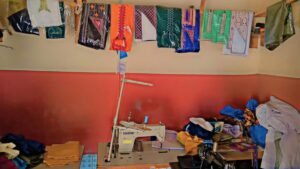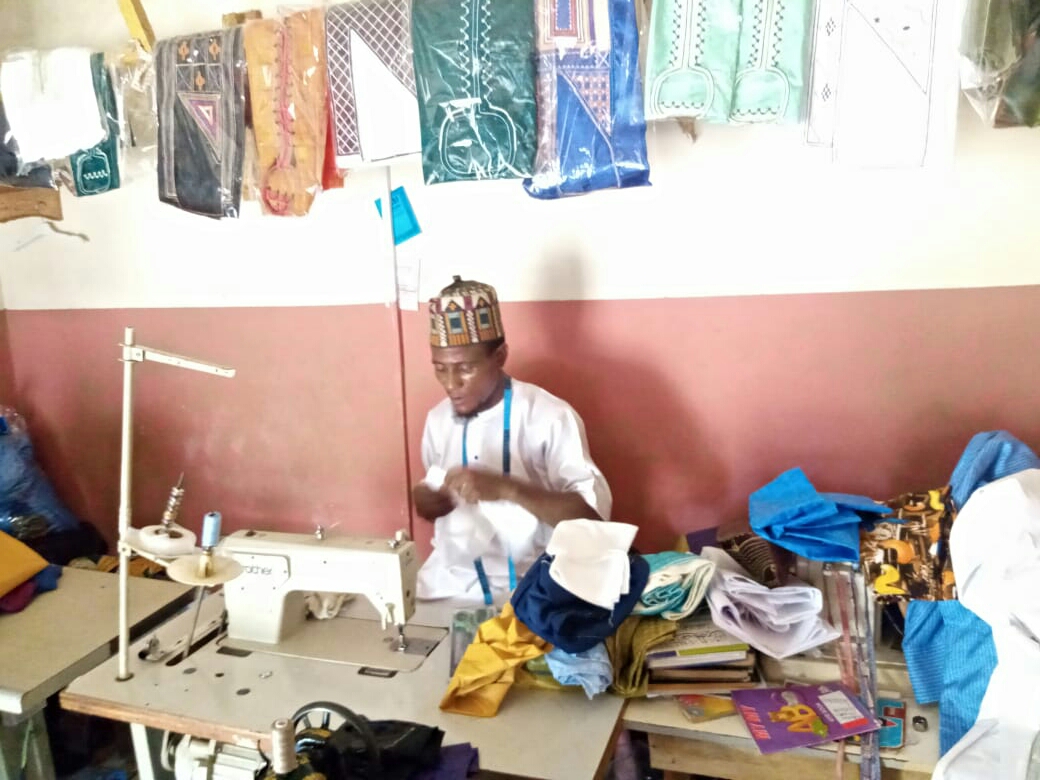By Sadiat omotanwa Ajayi, Ibrahim Kasimu Dadi, Shamsiya Shitu Yahaya, Aisha Ndanusa Ibrahim and Fatima Binta Idris
Eid-ul-Fitr, typically a joyous occasion marked by new clothes and celebration, faces a different reality this year for many Nigerians due to soaring inflation. Tailors across the country report a significant drop in patronage compared to last year, reflecting the economic strain on families.
PRIME TIME NEWS correspondents spoke to tailors in various locations, all painting a similar picture.
Ismail Musa Galadima, from Nasarawa State, lamented a drastic decline in customer numbers. “Last year, I sewed about 150 sets of clothes. This year, not even 100. People are struggling to eat, let alone buy new clothes”he said.

He added that the cost of sewing materials has forced him to raise his prices by nearly 40%, further impacting affordability. Insufficient electricity has also hampered his business, leading him to stop taking new orders halfway through Ramadan.
Hauwa Alhassan, a tailor from Anguwan Dakata, echoed Galadima’s experience. “The level of patronage has dropped massively,” she said. “People can barely afford fabric, let alone tailoring.” Customers are opting for ready-made clothes as a cheaper alternative.
The story is the same across Kano State. Khadija Shu’aib from Brigade, Nassarawa Local Government Area, reported a significant decline in customers due to rising clothing costs.
Aminu Usman from Gadon Kaya, Gwale Local Government Area, shared that tailors have no deadlines this year due to low demand. Even customers who previously ordered multiple outfits are now limited to one.

Muhammad Sani Suleiman, a fashion designer, observed a shift in priorities. “Parents are more concerned about their children’s clothes. As they fear their children being embarrassed by peers who have new clothes” he said.

However, unstable power supply, high fuel costs, and low customer remuneration forced him to stop accepting orders midway through Ramadan. He estimates that 60% of his customers this year can only afford to pay 2,000 Naira per set of clothing.
Umm Zayd, another tailor, confirmed a decline in customers and later order placements. “A regular customer who used to bring friends isn’t planning to sew anything this year,” she said.

Umm Zayd said she has raised her prices due to increased material costs, but acknowledges the hardship it places on both customers and businesses.
Eid celebrations may be less extravagant this year, highlighting the economic challenges faced by many Nigerians.


